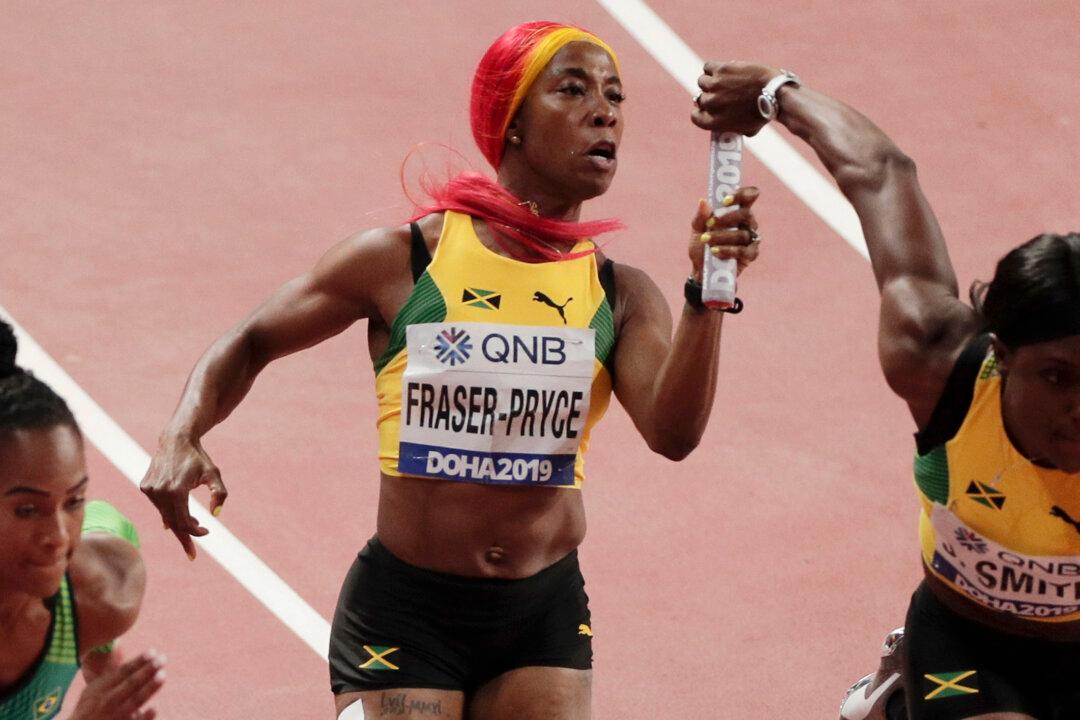Every time Shelly-Ann Fraser-Pryce steps on the track, some sort of record is in jeopardy.
At the top of that list, of course, is Florence Griffith Joyner’s 33-year-old mark in the 100 meters.

Every time Shelly-Ann Fraser-Pryce steps on the track, some sort of record is in jeopardy.
At the top of that list, of course, is Florence Griffith Joyner’s 33-year-old mark in the 100 meters.